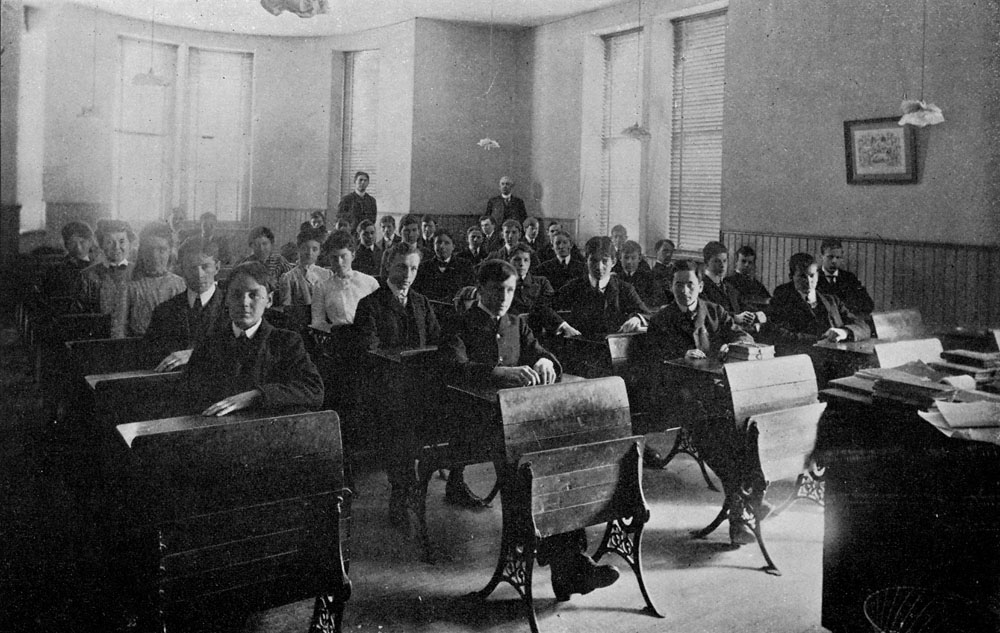 |
| That isn't lightening; it's the sparks that came out of head during one of my new rants (not really but it fits with the theme of this blog post). |
Now I knew when I signed up for this program that there was going to be a lot reading, writing and sleepless nights. I just didn't comprehend the emotional roller coaster that was involved. I thought for this blog post that I would give a bit of perspective of the start of this academic journey that I started this summer.
I found out that I was accepted to the Werklund's School of Education's doctorate program on Valentine's day. I couldn't speak as I read the email; I kept making hand gestures and noises to my husband and daughters as the realization came over me that I was about to start this journey. Overwhelming feelings of surprise and elation washed over me...and then the terror started to creep in. Can I really do this?
As I was packing and getting ready for my trip to Calgary, I read best wishes on social media from not only my family and friends but from current and past students. I decided to try and explain what it meant to stay in school after school and I posted the following message on my class's facebook page.
For many of you, your summer fun has just begun, but for some of you I know that the jitters are starting about going away to school. On the eve before my first class, I thought I would share some insights about continuing your education. When you came to GRCI, most of you were nervous--it wasn't so much about going to high school but the unknown that it represented. I like to compare it the first time you jumped into a pool of water. Before your feet left the ground, you wondered if the water was going to be cold, if you would swim, if you'd look competent swimming.
Going off to post secondary is like jumping off the lower diving board. You've been in the water--a.k.a. you've changed schools where everything was different, but it's been a while and maybe it feels colder and you're going to go deeper so you question your ability to swim to the surface.
Here's what you need to know--you know you can; you just have to trust yourself. My masters was like jumping off the 3 M board and with my doctorate, it's like jumping off of the tower platform. I have (am) been scared about my ability to succeed at my program; I have had my moments of doubt. Can I do this, am I wasting my money, should I be doing this, but all you have to remember is that there was a reason why you applied in the first place. The water will be fine, you will swim, you will be successful regardless if you take the occasional mouth full of water. So for my recent grads that are thinking that they'll be packing for the new school in less than 2 months, you'll do great. I'll be thinking of you all as I walk into my first class tomorrow morning 9 am central time.
I had no idea what I was about to start, but I was excited and ready to go. Then I went to my first class and realized just how cold and deep the water was. I would like to compare my first day to do a belly flop off of the 3 meter board. The pace was fast (expected) but learning that we were expected to have completed all of the readings before arrive (really, really not expected) left the blood rushing away from my face. How was I going to catch up?
To be honest, I haven't and with this is in mind I would like to formally and humbly offer my apologies for every opinion I gave about the readings during class.
Why you may ask? It is because I have started to "catch up" and realize what these articles and books are really saying. I want a do over as I have something really different to say. Sadly, I will have to use my blog for this as class is over and I'm back in Ontario.
Once I got back, people were asking me how was it and could we get together? After I stopped laughing--only a fellow grad student would understand. I decided to post an answer as I was still off the social gridline.
Some of you have been asking what's it like being a doctoral student? It's taking sips of sleep between sips of caffeinated beverages. We follow the RPTR rule: read, ponder, think and reflect. It's making me reread articles from years ago and realizing that I didn't' really understand the content; it's making me question my teaching practice and adapting new ideas from a lot of thinking. It's learning how critical it is to learn smarter..and on that note:
Why didn't I think of this earlier idea?
Seriously, why didn't I realize this idea before?
One last point, the best part of this program and what I learned this summer is that I'm stretching my learning exponentially but it's also making me question everything about the education system. From my readings on inquiry-based learning and professional development I have to comment. Why isn't this preferred and recommended learning style applied to teachers? What has PD looked like for me in my 16 years of teaching? It's a stack of manuals, papers and charts that have been placed in my mailbox or distributed at staff meetings with statements such as "you should read this", "we will be adopting these procedures", "the ministry is recommending this." At best, I only glanced at it at worst it was thrown in a pile of stuff I need to get to on my desk. Every year I would get to attend a one day PD session. Was that meaningful PD? Not really, where was the inquiry or the follow up scaffolding to ensure that a deeper level of understanding was reached? This summer I got to experience what PD should "feel" like. I'm finding myself experience informal and non-formal learning experiences from what I learned formally. I'm questioning, re-evaluating and identifying how I can utilize what I learned.
This is causing me to rant---why has it taken me 16 years as an educator to experience this?!? My goal is try and facilitate my experience as I prepare to act as a facilitator at a computer ed. camp next week.
Right now I'm going to hit send and enjoy my family.






